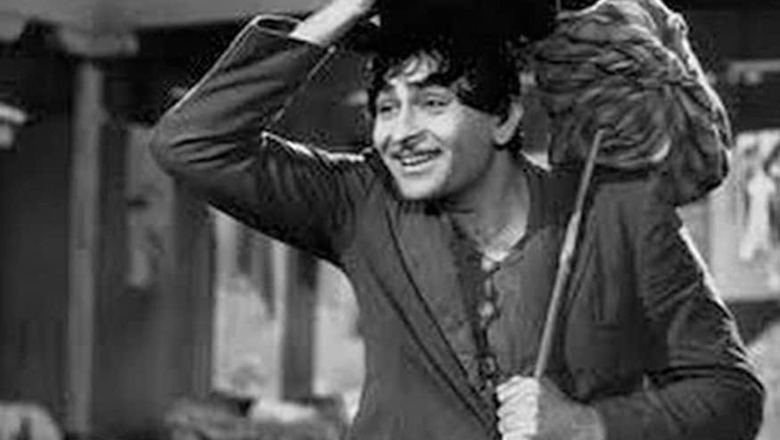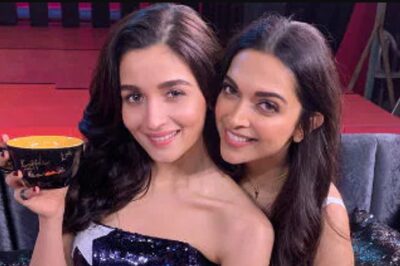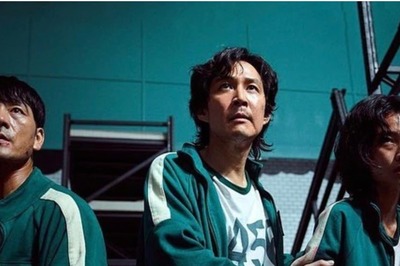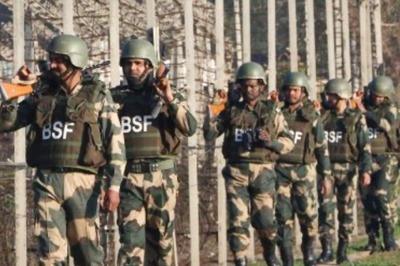
views
Whether it was the real and persuasive portrayal of a common man's life or the thought-provoking issues his projects dealt with, Raj Kapoor left an indelible impact on Indian cinema. Raj, who kicked off his career as a clap boy assisting Kidar Sharma, was honored with the Dadasaheb Phalke Award in 1987. On Raj's birth anniversary today, we give a lowdown on his films which you have and will continue to watch multiple times.
Aag (1948): This 1948 Bollywood flick, which marked Raj Kapoor's debut as producer and director, was the first of several films in which he was paired opposite Nargis. Interestingly, the film also starred Raj's youngest brother Shashi Kapoor as a child artiste. Shashi had essayed the role of the younger version of Kewal, the character which Raj played.
Barsaat (1949): Released in 1949, the film starred the already oh-so-popular Bollywood onscreen couple - Raj Kapoor and Nargis. Actress Nimmi was launched in the film industry with this film. Barsaat is referred to as one of the first key successful films which Raj had directed. Such was the success of the film that it enabled Kapoor to purchase RK Studios in 1950.
Awara (1951): The film revolved around the on the lives of oh-so-poor Raj and the wealthy Rita. In Awara, Kapoor had modeled his role on Charlie Chaplin's 'Little Tramp'. This screen persona was later developed in 'Shri 420'.
Mera Naam Joker (1970): Based on the life of a clown who uses his sorrows to make his audience laugh, 'Mera Naam Joker' was directed by Raj Kapoor and marked the debut of Rishi Kapoor. The film was made over six years and a huge portion of the money invested came from Raj's personal fortune.
Jis Desh Men Ganga Behti Hai (1960): Directed by Radhu Karmakar and produced by Raj Kapoor, the film was a hit at the Box Office. Raj played the role of a poor friendly orphan who ekes out livelihood by crooning songs.
Sangam (1964): First colour film of Raj Kapoor, Sangam made headlines for its epic length and technicolor. 'Sangam' introduced the concept of opting for international locales - such as Venice, Paris, Switzerland - to shoot films. It was directed by Dasari Narayana Rao who remade the flick in two languages - Telugu and Kannada.
Satyam Shivam Sundaram (1978): Post its release in India, The film created a huge controversy, courtesy the erotic content, plunging necklines of Zeenat Aman and the lovemaking scene of Zeenat
and Shashi Kapoor. The film was directed and produced by Raj Kapoor.
Shree 420 (1955): Raj Kapoor's role in the film was that of a underprivileged, but an educated orphan who comes to Bombay to turn his dreams into reality. The film's success can be understood from the fact that it garnered immense popularity in the Soviet Union and Romania. The song 'Mera Joota Hai Japani' not only became an instant hit but also symbolised the newly independent India. The film earned over Rs.20 million.
Teesri Kasam (1966): This film was based on 'Mare Gaye Gulfam', a short story written by Hindi novelist Phanishwarnath Renu. Directed by Basu Bhattacharya, the film was shot in Araria in Bihar. Teesri Kasam gave an insight into the rural society of India and innocence of villagers.
Anari (1959): In addition to the crackling chemistry of Raj Kapoor and Nargis, the film is popular because it was among the few films that saw Lalita Pawar play a positive role.
Bobby (1973): Often referred to as a trendsetter, the film revolves around a teenage love story set against the backdrop of a class divide. While the film was the debut for Dimple Kapadia, actor Rishi Kapoor got his first lead role in it.
Kal Aaj Aur Kal (1971): Produced by Raj Kapoor and directed by son Randhir Kapoor, the striking point of the film was the appearance of three generations of the Kapoor clan. The movie stars Prithviraj Kapoor, son Raj Kapoor, Raj Kapoor's son Randhir Kapoor and Randhir's wife Babita. The film was released after the failure of Raj Kapoor's dream project, 'Mera Naam Joker'.
Prem Rog (1982): If there is any film that played an instrumental role in making people aware of the social issue of widow remarriage and caste discrimination, it has to be Prem Rog. The film is a statement on the social customs - a widow should walk barefoot, shave locks, live in a cell. But it is how Rishi Kapoor rebuilds Padmini Kolhapure's life post widowhood that sent out a strong message. It wasn't a regular RK film.
Ram Teri Ganga Maili (1985): This was the last film Raj Kapoor directed before he passed away in 1988. 'Ram Teri Ganga Maili' became one of the biggest hits of Raj Kapoor. It was the third highest grosser of the 80s at the Indian box office.
Chori Chori (1956): Inspired by the Hollywood flick 'It Happened One Night', the film starred Raj Kapoor and Nargis again. While the story was impressive, the film's music was both soulful and interesting. 'Aaja Sanam' and 'Yeh Raat Bheegi Bheegi' were some of the soothing tracks of 'Chori Chori'.




















Comments
0 comment